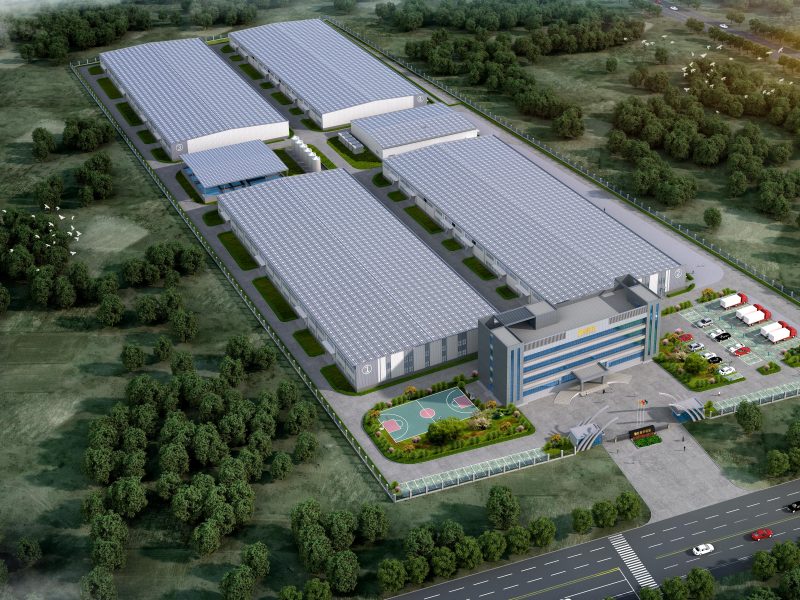
Prefabricated Steel Warehouses: Fast, Durable, and Cost-Effective Industrial Storage Solutions
In today’s fast-paced industrial sector, storage and logistics efficiency are critical for maintaining competitive operations. Traditional warehouses often require long construction times, high costs, and extensive maintenance.
Prefabricated steel warehouses have emerged as an innovative solution for businesses seeking rapid deployment, durability, and operational efficiency. Utilizing pre-engineered steel frames and modular panels, these warehouses offer scalable and customizable storage solutions suitable for global industries.
This article explores the benefits, applications, and design considerations of prefabricated steel warehouses for B2B clients.
Why Prefabricated Steel Warehouses Are Ideal
Prefabricated steel warehouses combine speed, strength, and flexibility:
- Rapid Construction: Prefabricated components allow assembly in weeks instead of months.
- Durable Materials: Steel frames resist corrosion, pests, and extreme weather conditions.
- Flexible Design: Modular layouts can be customized for storage, production, or logistics.
- Cost-Effective: Reduced labor, material waste, and maintenance costs improve ROI.
These qualities make them an optimal choice for businesses in manufacturing, logistics, and distribution.
Key Advantages of Prefabricated Steel Warehouses
- Fast Deployment
Pre-engineered components are manufactured off-site and quickly assembled on-site, reducing construction timelines and project delays. - Structural Durability
Steel frames withstand heavy loads, high winds, and seismic activity, ensuring long-term safety and reliability. - Scalable and Customizable
Modular sections can be expanded or reconfigured as business needs change. - Low Maintenance
Corrosion-resistant materials and simple design reduce long-term upkeep costs. - Energy Efficiency
Insulated panels and natural lighting options minimize energy use for heating, cooling, and lighting. - Sustainable Construction
Steel is recyclable, and prefabrication reduces on-site waste and environmental impact.
Applications Across Industries
Prefabricated steel warehouses are versatile and serve a wide range of industrial applications:
- Manufacturing Storage: Safely house raw materials, components, and finished goods.
- Distribution Centers: Optimized layouts for fast goods handling and shipping.
- Cold Storage Facilities: Insulated designs for perishable goods and temperature-sensitive products.
- Port and Logistics Hubs: Durable structures near trade gateways for cargo operations.
- Custom Industrial Solutions: Warehouses can be adapted for workshops, assembly lines, or mixed-use facilities.
Design Considerations for B2B Clients
When planning a prefabricated steel warehouse, investors should focus on:
- Load Capacity: Ensure the structure supports racking systems and heavy equipment.
- Layout Efficiency: Maximize usable floor space for storage and workflow.
- Climate Control: Consider insulation and ventilation for temperature-sensitive goods.
- Automation Compatibility: Space for conveyors, robotics, or automated storage systems.
- Future Expansion: Modular design allows adding new bays or extensions as business grows.
Case Studies
- European Distribution Center:
A 12,000 m² prefabricated steel warehouse was completed in 50 days, reducing construction costs by 30% and supporting high-volume logistics. - Asian Manufacturing Facility:
Modular steel components enabled rapid construction of a storage facility integrated with automated material handling systems. - Cold Storage Project (South America):
Prefabricated insulated panels maintained precise temperatures for perishable goods while cutting energy costs by 20%.
Why B2B Clients Prefer Prefabricated Steel Warehouses
For investors, developers, and logistics operators, prefabricated steel warehouses provide:
- Faster project completion and ROI
- Long-term structural durability with minimal maintenance
- Scalable and flexible layouts for future growth
- Energy-efficient and sustainable design
- Compliance with global industrial standards
These advantages make prefabricated steel warehouses a smart, reliable, and cost-effective solution for modern businesses.
Conclusion
Prefabricated steel warehouses offer fast, durable, and cost-effective storage solutions for industrial operations. They enhance efficiency, reduce operational costs, and provide flexible designs to meet evolving business needs.
For B2B clients, investing in prefabricated steel warehouses ensures rapid deployment, reliable performance, and scalable infrastructure for long-term industrial success.
